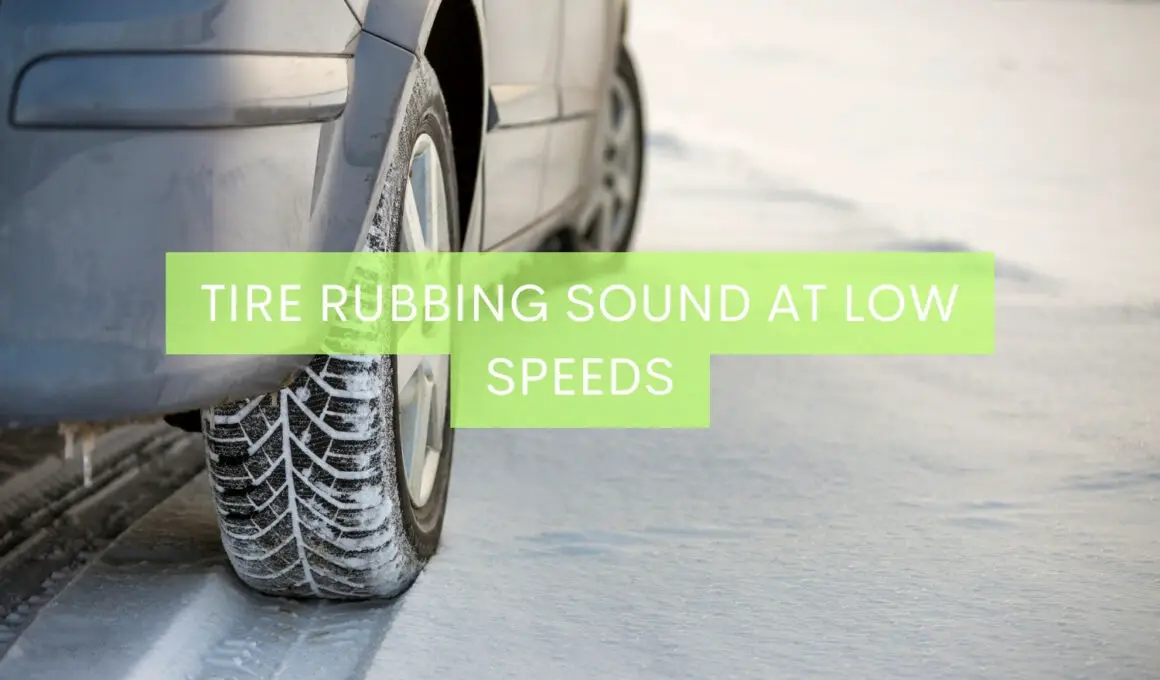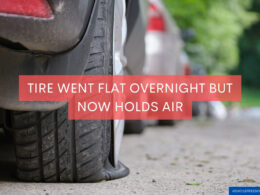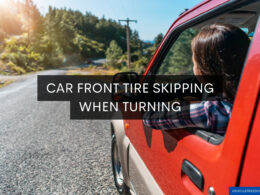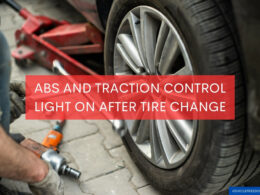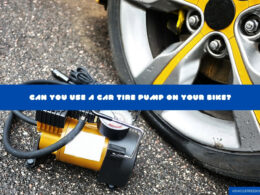In This Article Show
If you’re reading this, chances are you’ve noticed an odd noise when you’re out and about in your car – a kind of scraping or rubbing sound coming from the tires, especially when you’re driving slowly.
As a mechanic with years under the hood and a knack for putting pen to paper, I’ve heard it more times than I can count. It can be a bit unnerving, right? Like an unwanted guest in your car that just doesn’t get the hint.
Well, good news. You’re not alone, and there are fixes. That’s exactly what we will explore today in this blog post. I’ll walk you through why your tires might be making that annoying noise at low speeds and, most importantly, what you can do about it.
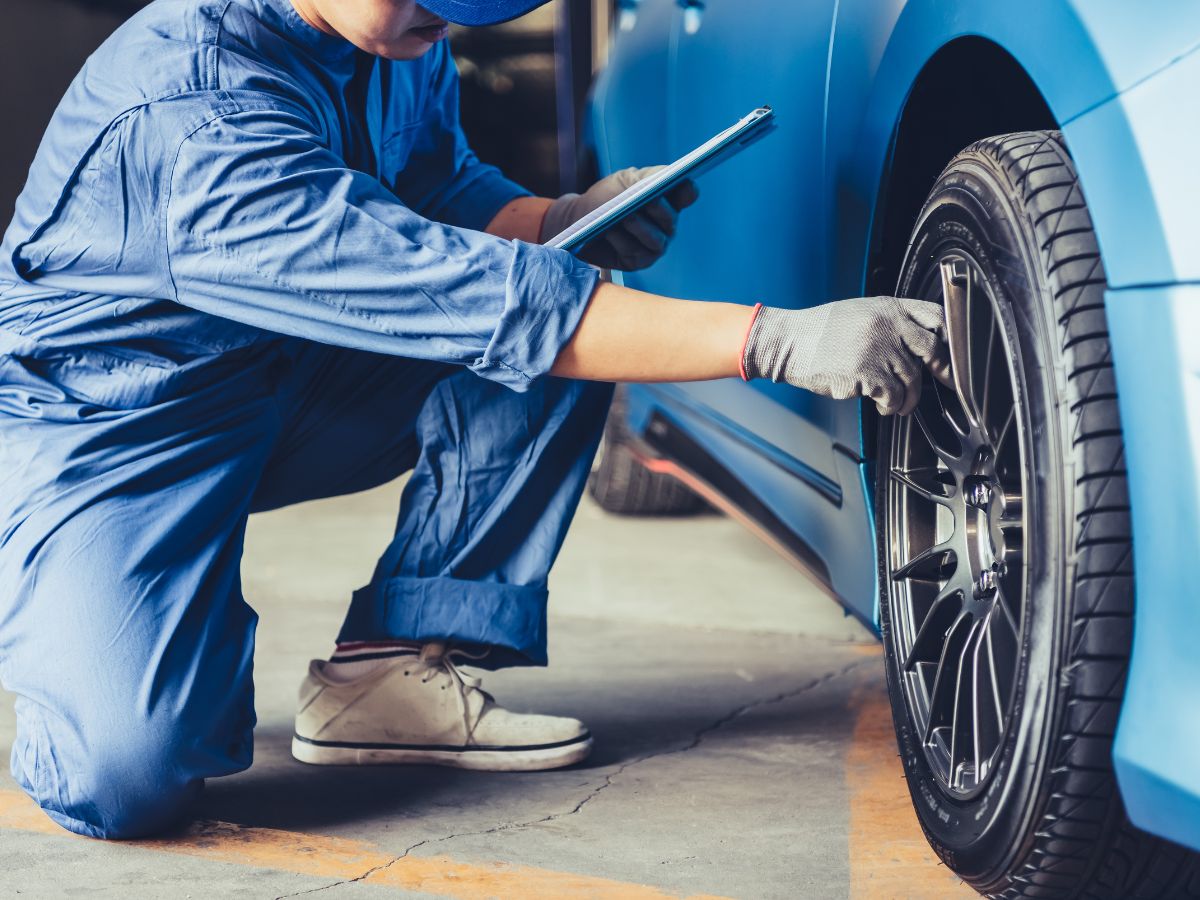
Understanding the Issue: Tire Rubbing Sound
When driving at low speeds, it’s common to become more attuned to the various sounds your car might produce. One such sound that often raises concern is a tire rubbing noise. This sound can be described as a consistent scraping or grating noise, akin to rubber persistently rubbing against a hard surface.
But why is this more noticeable at lower speeds? The answer lies in the relative quietness of your environment when your vehicle is not battling against high-speed wind noise, the engine isn’t working as hard, and road noise is generally reduced.
In such conditions, subtler sounds, such as tire rubbing, can become more pronounced.
Identifying the root cause of this tire noise is essential. The problem could be simple, requiring a quick DIY fix, or more serious, indicating a need for professional intervention. Either way, understanding the source of the issue is the first step toward a resolution.
The following sections will explore some of the most common causes of tire rubbing sound at low speeds and their corresponding solutions. We aim to eradicate the bothersome noise and ensure your vehicle’s overall health and safety.
Common Causes of Tire Rubbing Sound at Low Speeds
Here are some of the well-known causes known for making tire rubbing sounds at low speeds;
1. Misalignment
If the tires on your car are not aligned properly, they could end up rubbing against the wheel well, especially when taking turns. Misalignment can happen for various reasons, such as hitting a pothole or driving over a speed bump too quickly.
2. Incorrectly Sized Tires or Wheels
If your tires or wheels are too large for your vehicle, they may rub against the wheel well or suspension components, creating that distinct rubbing sound. This is often a problem when tires or wheels have been replaced without considering the manufacturer’s specifications.
3. Suspension Issues
The suspension system in your car keeps your ride smooth by absorbing the bumps and vibrations from the road. However, if a part of this system is damaged or worn out, it can cause the tire to rub against the wheel well, generating the sound you’re hearing.
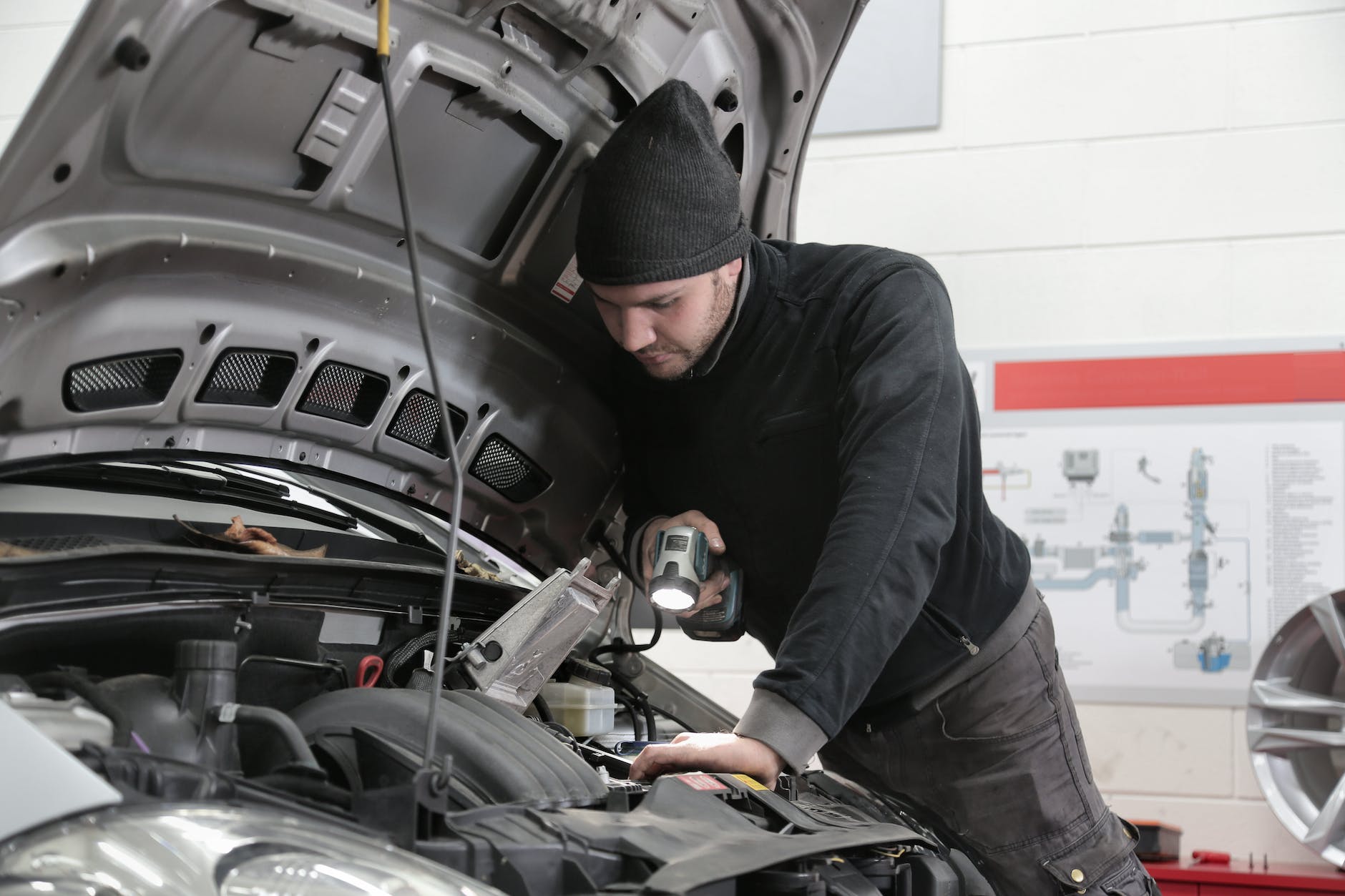
4. Worn Out or Damaged Wheel Bearings
The wheel bearings in your vehicle allow the wheels to rotate smoothly. When these bearings wear out or get damaged, they can cause the wheel to wobble, potentially leading to tire rubbing.
5. Brake Issues
If the brake components are worn out or not functioning correctly, they could be rubbing against the wheel or tire, generating that telltale sound. This could be anything from worn-out brake pads to a warped rotor.
Each of these causes has its own set of solutions, which we will talk about soon.
It’s essential to remember that pinpointing the noise source may require some investigative work and as always recommended, If the problem seems too complex or challenging to fix, don’t hesitate to consult your mechanic.
Fixing Tires Rubbing Sounds At Low Speeds
Here are some simple fixes for this issue from getting a new wheel alignment service to fixing brake issues.
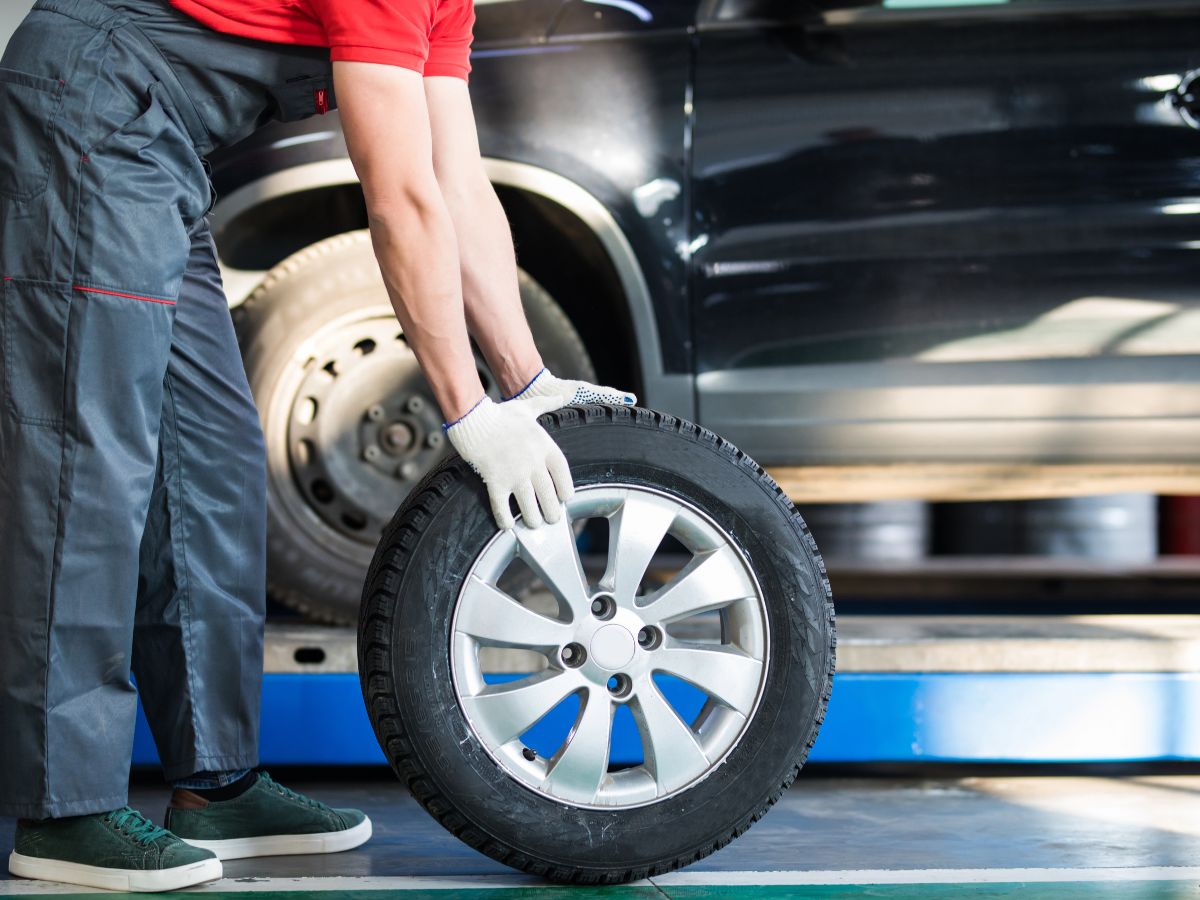
1. Adjusting Wheel Alignment
If misalignment is causing your tire rubbing issue, a simple wheel alignment service will fix the problem. Any professional mechanic or tire shop can carry out this service. It’s a standard procedure that involves adjusting the angles of the wheels to match the manufacturer’s specifications.
2. Ensuring Correct Tire and Wheel Size
If your tires or wheels are too large, the best solution would be to replace them with ones that match your vehicle’s specifications. Always refer to your car’s manual or consult a professional to ensure you use the correct size.
3. Checking and Repairing Suspension Components
If the issue stems from a faulty suspension system, the problematic components need to be identified and replaced. This can involve parts such as the shock absorbers, struts, or control arms. Given the complexity of the suspension system, this job is best left to professionals.
4. Replacing Wheel Bearings
Worn-out or damaged wheel bearings should be replaced as soon as possible, not just to eliminate the rubbing noise, but also to prevent potential damage to the wheel hub, axle, or even the wheel falling off. This is a technical job and should be done by a professional.
5. Resolving Brake Issues
If the rubbing sound is due to brake issues, the problematic components should be repaired or replaced. This could mean anything from changing the brake pads to replacing a warped rotor. Attending to brake problems promptly is crucial to ensure your vehicle’s safety.
Each of these fixes should address the specific cause of the tire rubbing sound at low speeds. Taking your car to a professional is always safer if you’re unsure about any step.
Remember, diagnosing and repairing your vehicle correctly ensures your comfort and, more importantly, guarantees your safety on the road.
Preventive Measures for Avoiding Tire Rubbing Sounds
Taking preventive measures can save you from dealing with an unwanted tire rubbing sound in the future. Here are a few proactive steps you can take:
- Regular Maintenance and Check-ups: Ensure your vehicle undergoes routine maintenance and check-ups. Regular inspections by a professional can spot potential issues before they become significant problems.
- Proper Tire and Wheel Installation: Always ensure that your tires and wheels are properly installed and balanced. Improper installation can lead to various issues, including the rubbing sound.
- Awareness of Vehicle Load Capacity: Overloading your vehicle can put extra pressure on the suspension system, which can cause the tires to rub against the wheel well. Always adhere to your vehicle’s recommended load capacity.
- Cautious Driving: Avoid potholes, speed bumps, and curbs that can damage your vehicle’s alignment, suspension, and wheel components.
- Tire Pressure: Ensure that your tires are always inflated according to the manufacturer’s specifications. Over or under-inflated tires can lead to various problems, including tire rubbing.
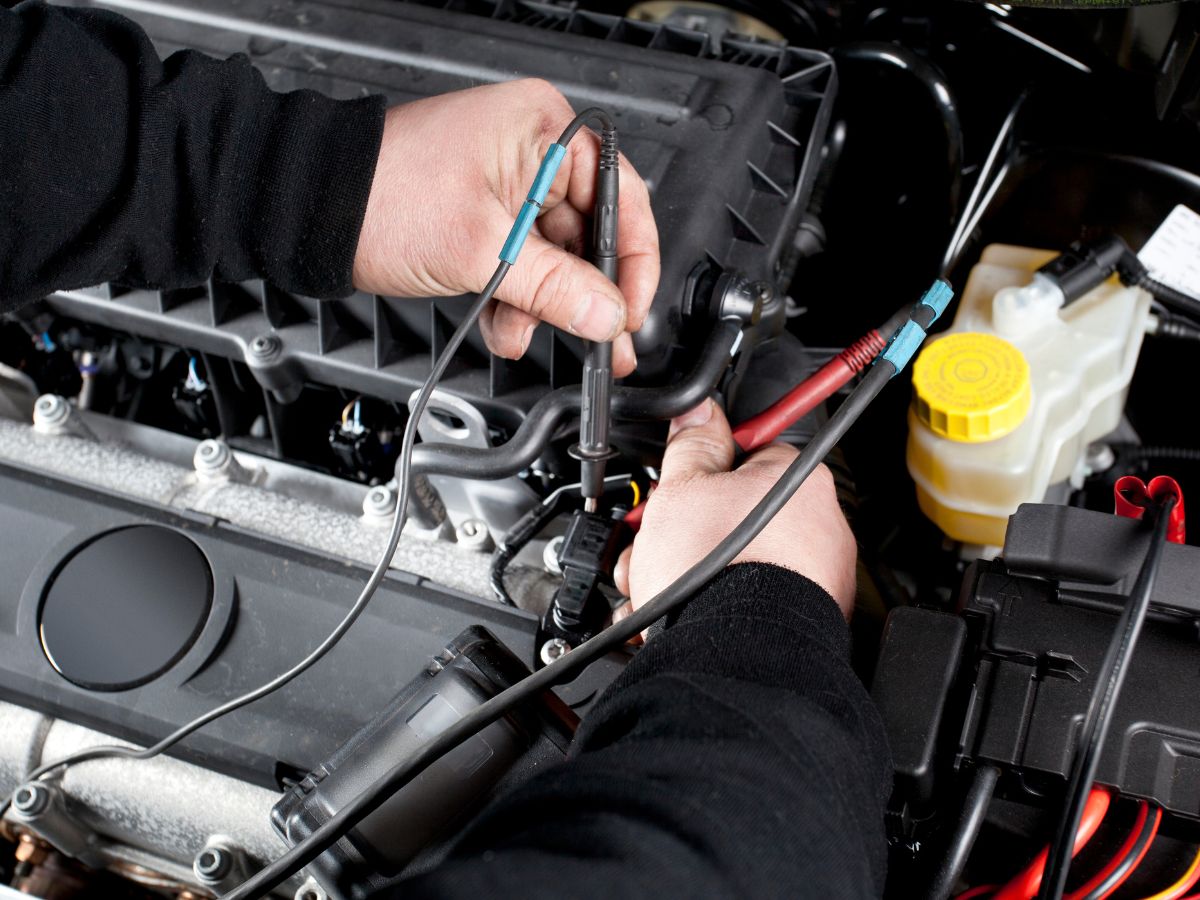
When to Consult a Professional
While it’s possible to solve some causes of tire rubbing sounds yourself, there are times when it’s best to consult a professional. If the issue persists after your initial troubleshooting, or if you’re uncomfortable attempting a fix yourself, it’s advisable to seek professional help.
Additionally, problems related to the suspension, wheel bearings, and brakes often require professional intervention due to their technical complexity.
Remember, your safety is paramount. While a tire rubbing sound may seem minor, it could indicate a more significant issue with your vehicle. Don’t hesitate to visit your local mechanic or auto repair shop if unsure about anything.
Ultimately, it’s all about ensuring a smooth and safe ride. So, don’t ignore the signs your car is giving you – take action and ensure your vehicle remains in optimal condition.
Wrapping it up
There you have it – an in-depth look at the tire rubbing sound at low speeds. From understanding what it might sound like and exploring its common causes to diving into the nitty-gritty of potential fixes and preventive measures, we’ve covered it all.
While some issues can be resolved with a bit of know-how and elbow grease, others demand the expertise of a professional. Always trust your instincts. If something feels beyond your comfort zone or if a problem persists despite your efforts, don’t hesitate to seek professional help.
We can’t stress enough how essential regular maintenance is to the health of your car.
By staying on top of routine check-ups and promptly addressing any issues, you’ll not only nip annoying noises like a tire rubbing in the bud but also ensure your vehicle stays in top shape for years to come.






